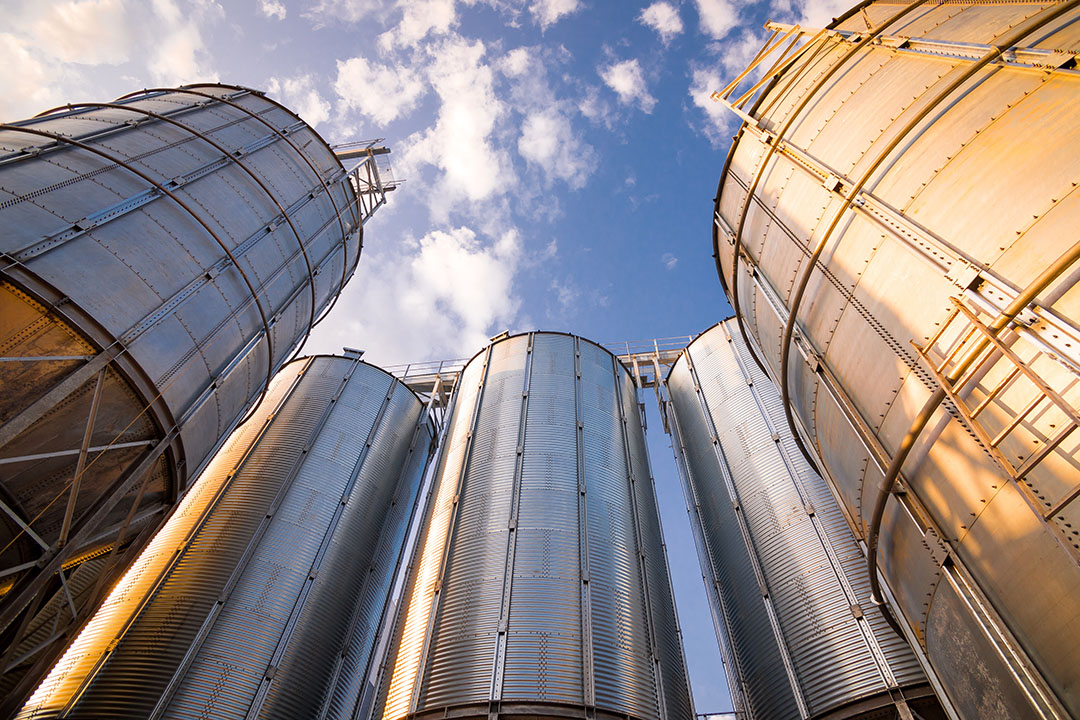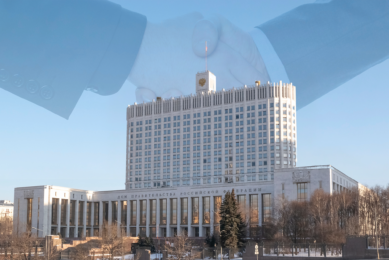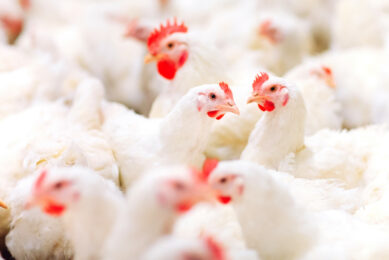Regulatory barriers hamper Russian feed additive industry

Russia is one of the world’s biggest feed additives importers, but the regulatory environment there is characterised by a number of systemic problems, which have yet to be solved.
Over the past decade, nearly 10,000 applications have been submitted to the Russian veterinary watchdog Rosselhoznadzor to register imported feed additives for the Russian market, but only 3,000 have been approved, according to Sergey Mikhnyuk, CEO of the National Feed Union. Some liberalisation may be already underway as businesses work strenuously to get more feed additives registered.
“We have some questions for Rosselhoznadzor regarding the current process of feed additive registration. We really hope that within the recently launched regulatory constraints we will be able to adjust the requirements to reflect common sense and global best practice,” Mikhnyuk said. “One of our main aims this year is to enhance cooperation with the leading European feed organisations, including FEFANA and FEFAC, to transfer the best practices of registration of feed additives to Russia. Now we have a system in which if a company even slightly changes the composition of a feed additive, it has to register it as a new additive in Russia. We believe this is the wrong approach. Sometimes, feed additives are not given the go-ahead to enter the Russian market, because Russian laboratories are not able to run certain tests on the components they contain,” says Mikhnyuk. “There are a lot of feed additives that could be used by the industry, bringing profits to farmers and advancing agricultural science, but we have not been able to break through the administrative barriers,” Mikhnyuk adds.
Now we have a system in which if a company even slightly changes the composition of a feed additive, it has to register it as a new additive in Russia.”
Streamline regulations for feed additive imports
When it comes to the import of feed additives into Russia there are some systemic and some minor problems. For instance, the decision by Rosselhoznador to check feed additives for the presence of GMOs causes certain difficulties and yet, compared to the bigger issues importers have to deal with, it is considered to be not much more than a minor impediment,” according to Mikhnyuk. “We need to streamline the existing regulations. For example, we don’t even have clarity as to the definition of feed additives,” commented Dmitry Denisov, director of Global Vit, explaining that sometimes it is not clear whether a certain substance should be submitted for registration on the Russian market or not.
The biggest problem is that we don’t really have any discussions with our regulators…”
There are no questions about vitamins, but we also import minerals, which are used in premixes, and it is quite clear that we cannot register the entire periodic table. “The biggest problem is that we don’t really have any discussions with our regulators, including the Agricultural Ministry; there is no feedback, and things have just been getting worse over the past seven years,” commented a source in the Russian feed industry who wished to remain anonymous. “Sometimes we see some inadequate actions by the authorities and truly ridiculous cases that cause problems for the business. We hope that the recent efforts by the National Feed Union will bear fruit and that there will be some positive changes. If we could move away from some of the current excessive regulations, which often contradict global best practice, this would really make our lives easier,” the source added. Russia imports a wide range of feed additives worth around Rub60 billion ($ 900 million) annually. This figure is projected to grow as the country is set to further boost livestock production in order to nearly double the value of agricultural exports, which are expected to be worth $ 45 billion per year by 2025.

Lysine is in the spotlight
Russian feed additive importers have raised strong concerns about a weird situation surrounding the import of lysine in recent months. “Russia only produces lysine sulfate, but imports all the lysine hydrochloride it needs. I would estimate the import of lysine hydrochloride at 50,000 to 55,000 tonnes per year,” Mikhnyuk said. In February 2020, Rosselkhoznadzor registered lysine hydrochloride from the Chinese manufacturer Eppen, 2 plants of which were prohibited to supply their products to Russia in December 2017. “The permission to import lysine was obtained by a [Russian] company that has never previously been seen working on the Russian feed market. This unknown company has registered the Chinese lysine under its own brand, which means it holds the exclusive right to import lysine from this Chinese manufacturer,” added another source on the Russian market who wished not to be named. In this case the registration procedure took place in only 2 months – an extraordinary short period of time to get a green light to sell a feed additive on the Russian market, according to Mikhnyuk. As a rule, the procedure of registration of a new feed additive takes about 6-8 months.
Lysine import competition wiped-out
The main problem, however, is that before granting that import permission, Rosselkhoznadzor virtually wiped out all the competitors on the market. “Rosselkhoznadzor has limited the import of lysine hydrochloride into Russia in 2 stages. In December 2017, the veterinary regulator banned the import of lysine from all Chinese manufacturers. Those restrictions have pushed up the price of lysine in Russia,” according to Mikhnyuk. Further, at the end of 2019 and in January 2020, Rosselkhoznadzor also banned almost all of the main remaining non-Chinese lysine producers, with the exception of Ajinomoto (France), a company supplying expensive lysine and focused mainly on Europe and the Brazilian branch of CJ (South Korea), whose core market is Latin America. So it has rather small volumes to deliver to Russia. Mikhnyuk thinks this issue causes major concerns: “We are trying to make contact with that Chinese company to get an idea as to whether it is ready to sell its lysine to other feed additives importers in Russia or whether it intends to retain exclusivity on the market. We also aware that the same company has recently filed an application to the EFSA to register its lysine feed in the European Union. We would like to appeal to our colleagues in Europe to know whether they have any insight into the safety of products that company is offering,” Mikhnyuk added. “We have heard that EFSA raised certain issues regarding the safety of that lysine and, if that is the case, we wonder why the regulator fast tracked the registration.”
![]() Market Prices in real time
Market Prices in real time
All About Feed has partnered with Glowlit to give readers access to real-time pricing of amino acids and vitamins. Stay up-to-date…
Back-and-forth with VAT on feed additive imports
 |
| Russian feed additive importers raise strong concerns about the situation regarding the import of lysine. Photo: The National Feed Union |
A real headache for feed importers over the past year caused a dispute with the Russian Ministry of Finance about the retrospective VAT hike on imported feed additives in the period 2016-2018. Over the past few years, 20 – 25% of feed additives in Russia have been imported under the preferential tax regime. This means that importers paid 10% VAT instead of the standard 18%, taking advantage of a government regulation that allowed companies to pay lower taxes on specific products in the food and feed industries. The problem is that the regulation was rather unclear and contained certain gaps, which were only sorted out and clearly spelled out at the end of 2018 and became effective and understandable from the first quarter of 2019.
The Russian Ministry of Finance ruled that because of the existence of those gaps all feed additives had to be imported into Russia with 18% VAT between 2015 and 2018, meaning that importers were obliged to pay in retrospect an additional Rub6 billion ($ 90 million) to the federal budget. “This is absurd because a regulation adopted late in 2018 clearly subjected feed additives to a soft 10% VAT rate, adjusting the original regulation,” Mikhnyuk states. He adds: “We appealed to the Finance Ministry, to the Agricultural Ministry and to the Presidential Administration, but were not able to establish meaningful negotiations with the government. We believe this case raises reasonable concerns about the consistency of policy by the Ministry of Finance in this area.” On November of 2019, the Higher Court of the Russian Federation supported feed additives importers, but this only resulted in all cases on VAT payment in the regional courts initiated by importers against the Federal Custom Service stalling and there are still no progress in this area. According to Mikhnyuk the problem is that, when there is a financial dispute between an importer and the Customs Service in Russia, the importer has to first pay, and can only later seek justice in court.
Interventional fund for crucial feed additives may be needed
The National Feed Union is planning to make a proposal to establish an interventional fund of crucial feed additives similar to the one we have on the grain market. The idea is that the government purchases certain volumes of the crucial feed additives that no livestock company can effectively operate without. Those volumes could be released on to the market to prevent acute price turbulence, like that caused by the Covid-19 pandemic. “Basically, we expect that it will take at least a year to establish that fund, if our proposal is approved,” Mikhnyuk added. “The idea is good, but a big question is: who would run the bank and who would decide when to release the feed additives on to the market?” said Denisov. “This would help to mitigate price hikes, but what if the prices for feed additives on the market go down? In that case someone would have to bear the losses.”











